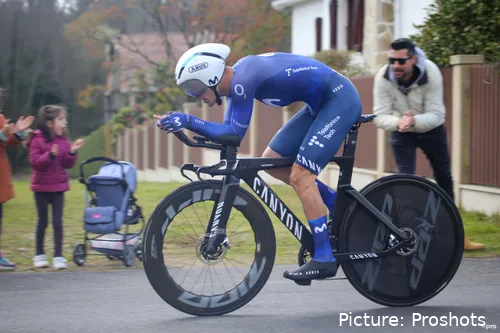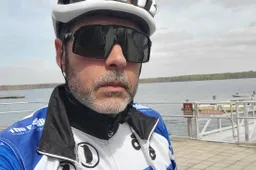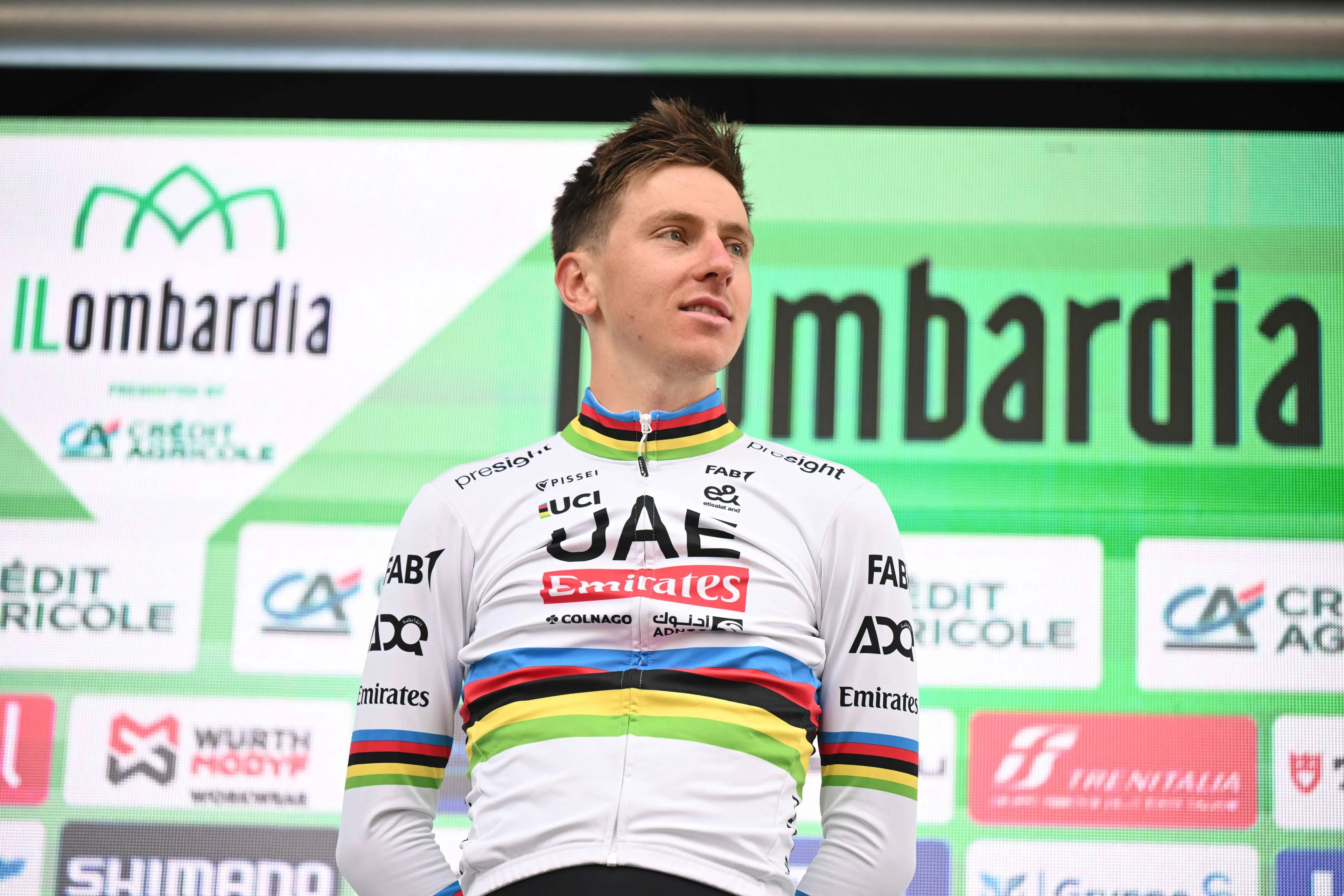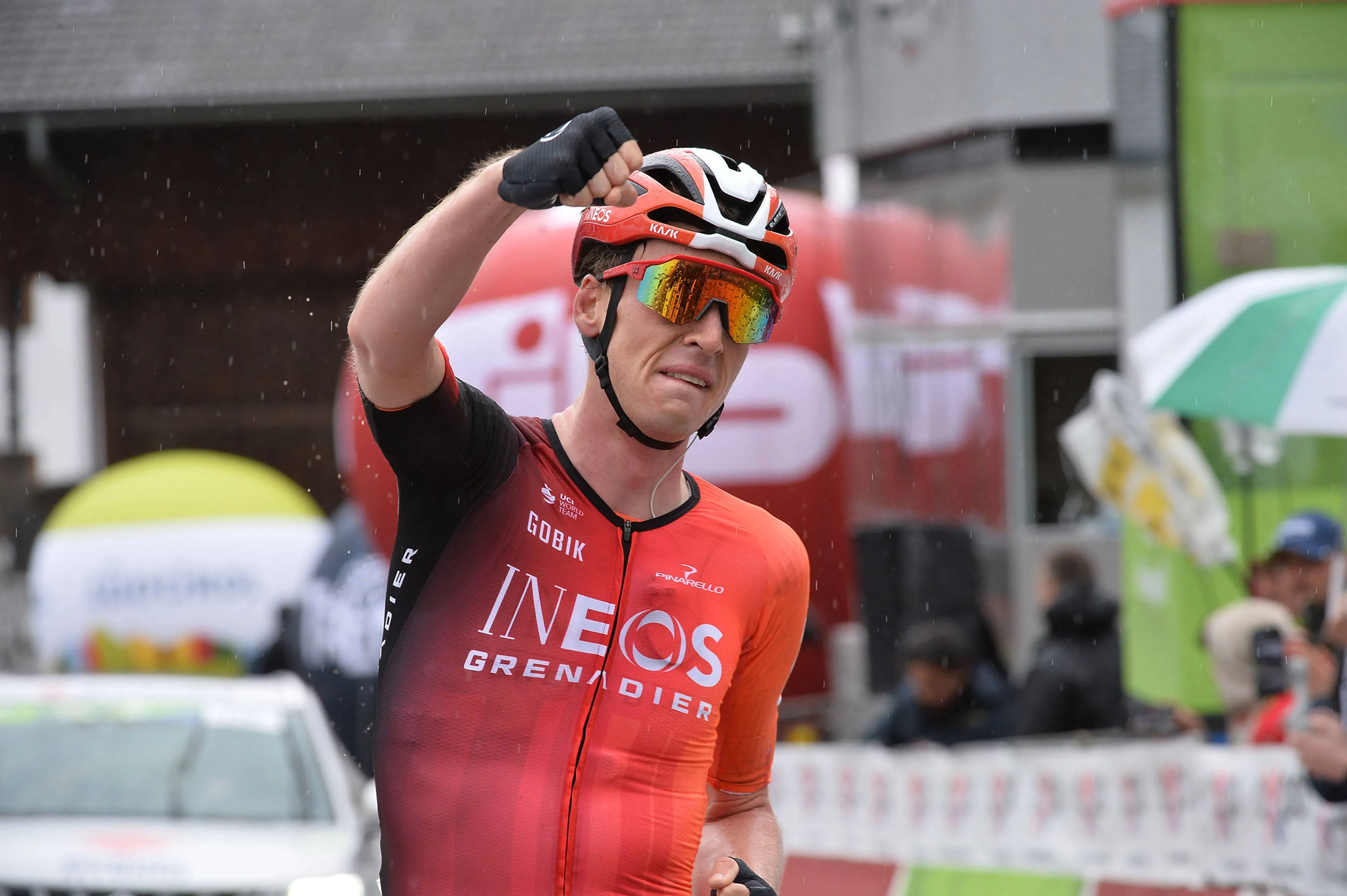Tadej Pogacar's doping accusations partly come from Lance Armstrong's demise: "The way he left was horrible and left a huge hole in the sport"
CyclingSunday, 27 October 2024 at 10:39

Rubén Guerreiro appeared on SIC Notícias' "Ontem já era tarde" podcast, where he discussed a wide range of topics from his cycling career, ranging from his childhood days, through his first rides as a federated mountain biker, recalling the year he was king of the mountain in the 2020 Giro d'Italia, to the present day, where he has completed another season at the service of the Spanish Movistar Team.
The now Movistar rider took up cycling after giving up soccer in his early years. "I trained at Samora Correia," he confessed, going on to play for other teams until the age of 14, when he discovered that it wasn't in soccer that he found happiness, but on two wheels. "My father was a cyclist. If I talked about the Tour de France with my friends, I'd be talking to myself. They only liked soccer. I'd already done a few half marathons and marathons with the guys who like cycling on Sundays as a non-federated rider, but it was at the age of 15 that I did my first federated race."
Read also
He emigrated early, to Axel Merckx's Axeon team, because "I went abroad when I was 20, I had people who helped me and I went to the United States, where I did my training and was able to compete with the best cyclists in the world at under-23 level and some elites, which was fundamental to my development. If I hadn't taken that step I wouldn't be where I am today," recognizing that "there's a huge difference between abroad and Portugal in this sport."
In the 2020 Giro d'Italia he shone in the transalpine mountains, winning the blue jersey, the symbol of a mountain leader." I like going downhill more. If I'm in good shape, I like climbing. You really have to be on point athletically, physically and mentally. You have to have these three types of characteristics, plus the bike and the team around you, to have everything perfect to be competitive at the highest level"

Ruben Guerreiro. @Sirotti
"The life of a professional cyclist is very strict, I can't go out for a night because otherwise my body will pay for that night for weeks," he recalls, adding, "You can't eat whatever you want. Nutrition is key, because it depends from rider to rider in terms of carbohydrates, whether you're a sprinter, a climber or a time trialist," he said.
Read also
Lance Armstrong was my childhood idol
The conversation turned to Tadej Pogacar, who has had a fantastic season, and the comparisons with Merckx, and he was asked to comment on the Slovenian rider's position in cycling. "You can see the results. He's had one of the best seasons in history. I got to know him quite young, he was never my teammate but we could tell he was different, there was a talent there. I raced against him several times and only beat him once. We could see that there was an unusual talent there and the fact is that he has developed year on year. He's beaten us in the one-day Classics, in the one-week races, he's won the Grand Tours, he really is one of cycling's greats."
Regarding the doping suspicions that have fallen on Pogacar after this insanely successful season he's just had, the Portuguese said: "As cycling is such a raw and unpredictable sport, we always have that idea, that little voice of suspicion. Armstrong left a huge hole, because he was more than a cyclist, he was a winner in life because of a very big illness he had (testicular cancer, ed.) and he made contact with the media like nobody else. He was a flag, he was very intelligent. The way he left was horrible and left a huge hole in the sport"
"Lance Armstrong was like a movie hero. A reference point for everything he achieved in cycling and beyond. I felt like my hero had been lying all his life," laments Ruben Guerreiro.
Read also
claps 0visitors 0
Just in
Popular news
Latest comments
- Imagine Pogi being in this race. He would motivate Del Toro "common, common...let's go, let's leave Remco even more behind." Of course Pogi would go ahead and catch Tiberi. 1) Pogi... 2) Tiberi... 3) Del Toro... Remco would be behind more than 3 min. Pogi being at the UAE (his own Tour) would have crushed Remco mentally, like in 2025. Poor little Belgian child.Mou-Cro-HR19-02-2026
- Slowly and slowly Remco is fading. He's an over rated cyclist.Mou-Cro-HR19-02-2026
- Go back a few months and check what I wrote. This guy is the best sprinter out there in the next 5 years. Also he can do more than sprint ..
 PAULO19-02-2026
PAULO19-02-2026 - Fantastic climb by Tiberi. Let’s see more of this from him.Pedalmasher19-02-2026
- Loved watching this finale. Brutal climb, looked like a brand new Middle Eastern Alpe d'Huez with those switchbacks on the mountain edge. So much grit on Del Toro's face. I really thought he might catch Tiberi with about 1500m to go. Great stage.antipodeanpedalfan19-02-2026
- You’re expecting cycling to stay immune from this type of conjecture when the worlds’ most watched and listened to figure spouts out similar unsubstantiated crap daily? Most people just follow bad example because it’s a lot easier than figuring out a good one. Anyway, it could be anything, perhaps he just knew Andrew too well, or Sir Jim didn’t want him helping any more of those pesky foreigners and paid him off ;-) He doesn’t seem the Epstein type but if that was it, kudos to him for being practically the only one to resign BEFORE being found out. I find it very concerning that no-one has much to say about any of these people who keep at it until they just can no longer claim their innocence. Who did they learn from, Lance?Mistermaumau19-02-2026
- If you are going to make comments like that, back it up with proof. Otherwise keep them to yourself.Searider18-02-2026
- In the same place as the outcry over boys vs girls losing weight, which, is in about the same place as boys vs girls getting hit, or abused.Mistermaumau18-02-2026
- Haha.awp18-02-2026
- That's a little extreme, you take wins where you can get them.awp18-02-2026
Loading
1 Comments









